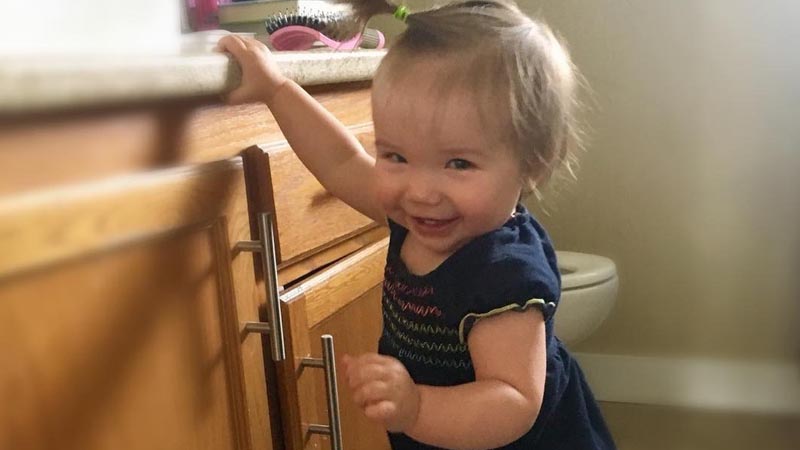Prompting Your Way to Parenting Wins
Want to help your child do things on their own? Feel stuck on how to teach your child something new? Are you feeling like you are nagging or always saying no? Read on to learn how to use prompting for parenting wins!
Prompting as means to “make something happen” (Cambridge Dictionary). Here are the three types of “prompts” that you can customize to make something happen for you family. This could mean helping your child learn how to use a spoon or get them to com inside without throwing a tantrum.

Verbal Prompts are most parent’s go to. Verbal prompts are anything you say after the instruction. The instruction might be “Dinner time.” The prompts would be anything else you say to help your child complete the task like put away your iPad, wash your hands, sit at the table, where’s your big girl cup etc. Verbal prompts tell the steps or give clues to how to complete the task. This style of prompting works well when a kid is ready to listen and knows how to do each step but sometimes forgets or has trouble starting a step.
Visual Prompts give more support and provide a child with more time to process information. They don’t have to tune out prefered noises like the television or iPad. Visual learning is a strength for many kids, so use it! Visuals include pictures, symbols, and text that can help your child respond correctly. Visual prompts are everywhere from road signs (stop signs, crosswalks, street names,) and hand washing step-by-steps in restaurant washrooms to alert notifications on cell phone apps. Prompts work to help parents too!
Physical Prompts make the task the easiest and can provide an opportunity for errorless learning and success! Physical Prompts are when you physically guide your child to complete the task. When washing hands you might model the action, give your child time to try, and then guide their hands to wash spots they missed. Guiding their hands to wash the missed spots is an example of a physical prompt.
Other Really Useful Prompts

Gestural Prompts: Pointing to the next item they need (soap when washing they are rubbing hands in the water without soap). Parenting often includes a lot of gestural prompts automatically. Bringing some deliberate intentions to your gestures will make them more effective.
Modelling Prompts: When a parent or sibling or friend demonstrates what you want the child to do. This is really powerful and natural way children learn.
Positional Prompts: Placing objects in a location or order that helps kids be successful. Laying out a toothbrush and toothpaste on the counter in the washroom before asking your child to brush their teeth can help them initiate the task because they don’t get stuck looking for the toothpaste. Another idea of positional prompts are picking out and laying out clothes the night before so your child has less steps to remember in the morning like finding clothes, does it match? Is it clean? What’s the weather? This allows a child to focus on steps like underwear goes on before shorts, and the label on my tee-shirt goes to the back.
Choosing the right type of prompt is how you can elevate from nagging to being heard and supporting your child learn.
- Think about when to use each prompt. How much support does your child really need? This can change on the day, hour, and minute. If your child is hungry and tired give them more support to successfully complete tasks and avoid a meltdown. When you child is rested or ready to learn and play challenge them by using less or different prompts.
- Mix and Match prompts to multiply the effectiveness of prompts. This could look like using gestural and verbal prompts like where do you put your shoes when we go in the house and pointing at the shoe rack. Another way to combo prompts is starting with modelling and then using a physical prompt to guide your child to complete the task.
- Fading Prompts. Keep in mind that once your child is successful in completing a task you can reduce your prompting to support their growth and independence. (That pretty much sums up parenting, doesn’t it?) If you started washing hands with guidance, once they are washing effectively you don’t need to guide their hands you can move to a verbal or visual prompt. This could look like asking before dinner “did you wash your hands” or posting a picture of the steps of washing hands in the washroom so your child can follow along without an adult being involved!
- Keep prompts positive by giving your child something to do. Instead of “don’t bring your iPad in the car” remind your child to “put your iPad away” or “leave the iPad and grab your backpack!”
- Stick to simple instructions. One or two step instructions are most effective.
Patience and parenting go together. The best way to get the full effects of prompts is to pair it with patience. Waiting and giving time for kids to process them and try is key. This is important with toddlers and teens! The silence between instructions or requests can make all the difference. Start with waiting between 3 and 10 seconds after an instruction before using an additional prompt.
Best Times to use Prompting to Win at Parenting
- Learning a new skill
- Transitioning away from a favorite activity
- When Praising a child use those different types of prompts to show them you like that kind of behaviour. You can praise your child for things they are doing well with smiles, descriptive verbal praise- I like the way you did ____ , high fives, eye contact, stickers, stamps etc.
- When calming or comforting your child.
- Go slow when learning. It’s okay to use many prompts until your child learns the skill or task. It’s also okay to fades some prompts and then bring them back when needed!

Hope this helps you feel confident about choosing the right prompt to support your child at this moment with this task. Keep thriving, parents!
Looking for more direct parenting and prompting support? Pediatric Occupational Therapist Jen Taubensee can coach your family one-on-one in our office or at your home. Contact us to book!

